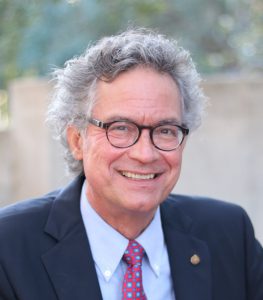 Mark E. Orazem
Mark E. Orazem
Ph.D., 1983, University of California-Berkeley (1988)
Distinguished Professor
Ph : 352-392-6207
Fax: 352-392-9513
morazem@che.ufl.edu
Department of Chemical Engineering
PO Box 116005
University of Florida
Gainesville, FL 32611-6005
Biographical Sketch
Mark Orazem obtained his BS and MS degrees from Kansas State University and his doctorate in 1983 from the University of California, Berkeley. In 1983, he began his career as an Assistant Professor at the University of Virginia, and in 1988 he joined the faculty of the University of Florida, where he is a Distinguished Professor of Chemical Engineering. He was recognized as a University of Florida Foundation Preeminence Professor and was the recipient of numerous University of Florida term professorships. Prof. Orazem is a Fellow of both the Electrochemical Society and the International Society of Electrochemistry, and he served as President of the International Society of Electrochemistry in 2011-2013. He has over 220 refereed publications, and he co-authored, with Bernard Tribollet of the CNRS in Paris, a textbook entitled Electrochemical Impedance Spectroscopy. This book, published by Wiley in 2008, was translated into Chinese and published by Chemical Industry Press in 2014. The second edition was published in 2017, and the Chinese translation was published in 2022. His edited book Underground Pipeline Corrosion was published by Woodhead Publishing in 2014. In 2012, Prof. Orazem received the Henry B. Linford Award of the Electrochemical Society. With his co-author Bernard Tribollet, Prof. Orazem is a 2019 recipient of the Claude Gabrielli Award for contributions to electrochemical impedance spectroscopy. He is the recipient of the 2022 Electrochemical Society Corrosion Division H.H. Uhlig Award and the 2021 Herbert Wertheim College of Engineering Doctoral Dissertation Advisor/Mentoring Award.
Link to Google Citation Analysis
Research Interests: Electrochemical engineering, electrochemical impedance spectroscopy, corrosion (including cathodic protection), current distribution in electrochemical systems, fuel cells, batteries, mathematical modeling
